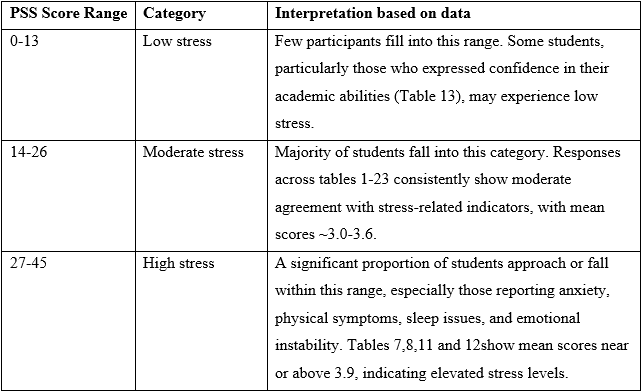EXAMINE THE EFFECTS OF HIGH-STAKE TESTING ON STUDENT’S MENTAL HEALTH AT UNIVERSITY LEVEL: A SURVEY RESEARCH
DOI:
https://doi.org/10.71146/kjmr430Keywords:
High-stakes testing, Student mental health, Anxiety, Stress, Depression, Coping strategies, Academic pressure, Standardized testsAbstract
This research investigates the effects of high-stakes testing on students' mental health, specifically focusing on anxiety, stress, and depression. High-stakes tests, such as standardized assessments, graduation exams, and college entrance exams, are integral to educational systems worldwide. While these tests are designed to measure academic knowledge and determine future opportunities, they also exert significant psychological pressure on students. This study aims to explore the extent to which high-stakes testing contributes to mental health challenges, including the intensity of stress, anxiety, and depression experienced by students, as well as the coping mechanisms employed. The data was collected through survey questionnaire and standardized psychological scale i.e perceived stress scale from 45 university students who had recently participated in high-stakes testing. The survey gathered data on students' stress and anxiety levels, perceptions of the tests' significance, and the coping strategies they use. The study utilized a quantitative research design, with data analyzed using descriptive statistics, mean and standard deviation. The research revealed that students experience significant levels of stress and anxiety before and during high-stakes exams, with some reporting long-term psychological effects, such as reduced motivation and sleep disturbances. This study also found that students' perceptions of the importance of the exams were a critical factor in the intensity of their mental health challenges. Those who viewed the tests as pivotal to their future success reported higher anxiety and stress levels. The research suggests that students often rely on coping strategies like time management and seeking social support to manage the pressure. The findings emphasize the need for educational institutions to prioritize student mental well-being by offering better support systems and exploring alternative assessment methods. The study calls for further research into the long-term effects of high-stakes testing and the development of strategies to mitigate its negative psychological impact. Ultimately, this research contributes to the ongoing discourse on creating healthier educational environments that balance academic performance with student mental health.
Downloads

Downloads
Published
Issue
Section
License
Copyright (c) 2025 Dr. Farkhanda Jabeen, Ruqia, Laiba Bahar (Author)

This work is licensed under a Creative Commons Attribution 4.0 International License.






